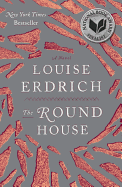
Louise Erdrich's The Round House takes readers inside the mind of an Ojibwe man, who, like Scout in To Kill a Mockingbird, looks back as an adult on a formative experience of youth--beginning, in this case, in the summer of 1988. In the opening scene, 13-year-old Joe Coutts and his father, a tribal judge, are working to uproot saplings that have gotten into the foundation of their home, a symbolic representation of the fragility Erdrich depicts throughout the book. Soon after, Joe's mother, Geraldine, is violently raped, and though she knows who attacked her, she's unclear exactly where it took place, leaving unresolved the question of which law enforcement agency has jurisdiction over the crime.
The tribal legal system that Joe studied and respected through his father has failed. This horror changes his life, and the only thing Joe knows for certain is that he must do something, although he does not realize what the pursuit of justice will do to him and his family.
The Round House is a picture of magnificent contradictions, and Joe's experience is a microcosm of Native American history, as the strength and determination of the people empower them to adapt and survive. With its passionate prose--plunging us directly into Joe's consciousness, without even quotation marks to filter the raw experience--heartbreakingly realistic characters and intimate understanding of Native culture, Erdrich's stunning novel reminds us it is a crime Native Americans ever had to adapt in the first place. --Jen Forbus of Jen's Book Thoughts

